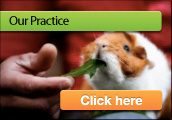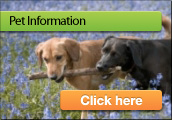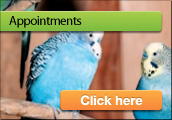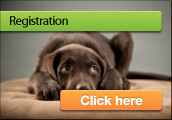Rabbits
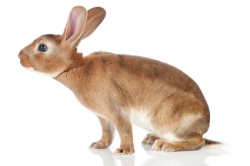
Rabbits make great pets but in order to see them at their best you need to consider their needs.
Rabbits are social animals. In the wild they live as large social groups. If you are thinking of keeping rabbits as pets it is better to keep at least two to prevent the high levels of stress experienced by rabbits living alone. Males should be castrated to enable them to be kept together without fighting.
Living Space
Hutches should be large, providing room for the rabbit to move around, stretch out and stand on their hind legs. There should be enough space for the food, toilet and sleeping areas to be kept apart with a covered area to hide in.
The Rabbit Welfare Association recommends a minimum hutch size of 6’x2’x2’ along with a secure run of at least 8’x4’.
Diet
Rabbits need to eat grass or good quality hay, as much as they can chew! Without it they are in danger of life threatening dental problems and other ailments.
Rabbits’ teeth grow continuously throughout life. The grass they eat contains silicates (similar to sand) which wears the teeth down. If the diet doesn’t contain grass the teeth will grow out of control.
You can supplement your rabbit’s diet with a small amount of commercial food along with its grass and vegetables. We recommend Supa Excel Rabbit Food or Supreme Science Rabbit. Cheaper foods usually contain high levels of cereals and lower fibre. If fed a muesli type mixed food rabbits will often pick out their favourite pieces therefore not getting all the nutrition they need. This can result in a malnourished or even obese rabbit. Food made up of identical pellets or extrusions (biscuits), referred to as a mono-component diet is better for rabbits who selectively feed.
What’s Up Doc?
Prevention is always better than cure and the following preventative medicine will also help your rabbit to live a longer, healthier life.
Vaccinations
In rabbits we vaccinate against two diseases found in the wild rabbit population.
Myxomatosis a fatal disease transmitted by biting insects. Signs include swollen eyes and genitals, respiratory disease and death.
Viral Haemorrhagic Disease a fatal disease that causes fever, depression, diarrhoea and death. A combined vaccine is now available which is given once per year.
Worming
Encephalitozoon cuniculi-this is a parasite, a small protozoan that lives inside the body cells of its host. It is thought that just over 50% of apparently healthy rabbits have been exposed to E.cuniculi, the majority of which will have been infected at a very early age from their mother. These protozoa invade various tissues and can result in one or more of the following symptoms: head tilt, loss of balance, hind-limb paralysis, urinary incontinence, eye lesions and sudden death.
Routine treatment with Panacur Rabbit two to four times yearly is recommended to help prevent this disease.
Health Checks
It is important to check your rabbit regularly for any signs of ill health. Weighing your rabbit weekly at home will help you to spot health problems early. Other symptoms to watch out for are:
- Loss of Appetite
- Looking Depressed
- Skin Problems
- Runny Eyes and Urine Soaked Back Legs
It is advisable to make an appointment with one of our vets if any of these symptoms develop.
Neutering
We recommend castrating male rabbits to reduce aggression both between rabbits and towards their owners.
Female rabbits should be spayed to prevent aggression, unwanted pregnancies and cancers of the womb (up to 80% of female rabbits over 5 years old will develop cancer if not spayed).
Rabbits can be neutered from 4 months of age.
Popular Names - Just for Fun
Character names still feature strongly in rabbits with ‘Thumper’, ‘Bugs Bunny’ and ‘Peter’ still being popular ( Thumper is top) though you don’t see as many ‘Roger Rabbits’ as you did years ago. Names relating to fur colour are also a popular choice with ‘Cocoa’, ‘Smokey’, ‘Honey’, ‘Ginger’ and ‘Bailey’. The most unusual? I think our receptionist Catherine’s choice of ‘Sticky’ is probably unique.
A wealth of information on rabbit welfare is available from www.rabbitwelfare.co.uk
